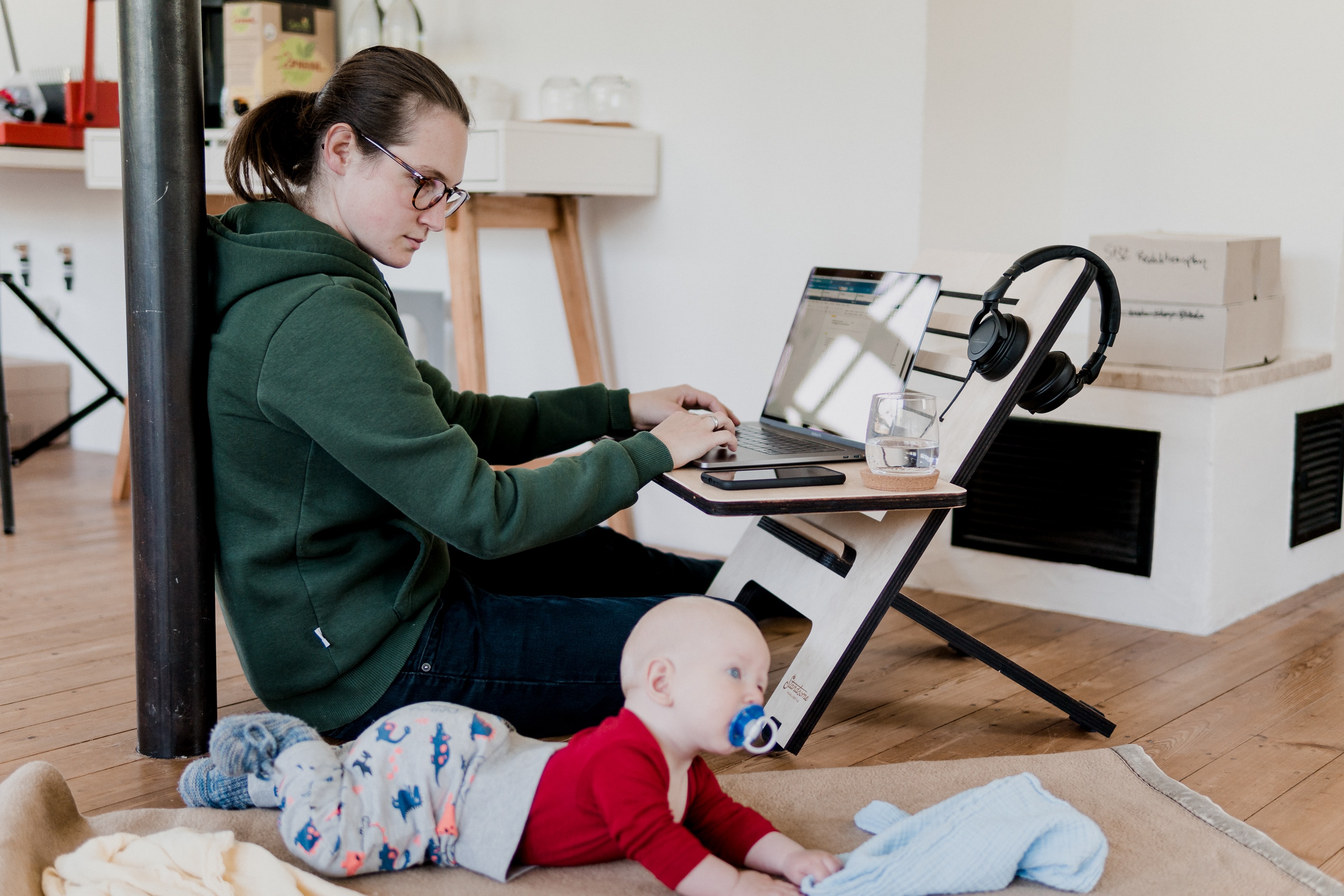Have you tried to motivate yourself to get things done lately while working from home and you Just. Can’t. Do. It?
When social distancing began, it occurred to us here at Free Range Thinking: we are experts at this (Confession. I’m an introvert). Our small business has been virtual for almost twenty years; granted, a lot has changed over that time. We’ve developed skills to stay motivated and manage the impact of remote work. So, as a consulting business, we are sharing our perspective on why this time is such a challenge and what to do about it.
The Honeymoon Phase
When anyone starts working from home, initially, it’s amazing. It’s the honeymoon phase. Yoga pants, makeup free, no commute! What a blessing it is to have all that time back, right? Even time spent driving your kids to school is off your to-do list each day (for now). There’s so much time to get your work done! Right? There is a burst of productivity wrapped up in the novelty of being home. This lasts about a month and quickly gives way to the Frustration Phase.

The Frustration Phase
Reality sets in. You’re in an environment where you’re constantly distracted, pulled into doing non-work tasks and surrounded by other people. And this isn’t just your kids and dogs. It’s your spouse, your mother-in-law who lives with you now, the internet (which is a distraction in and of itself) and the news, a never ending stream of mostly negative conversations. In my best Chandler Bing voice, “could there BE any more distractions?” No, there could not. Especially when there are 10 seasons of Friends to revisit!
When you worked from home pre-COVID, it was enjoyable to be out of the office. It created a “Friday Feeling” (regardless of what day of the week it was). Maybe you were super productive, hustling to complete your work and move on to other passions – home improvement projects, relaxing, pouring that glass of wine, you know what I’m talking about. Now: you’d rather mop the floors than do anything that relates to your job, because now you see the floors every day and we understand that with a family, kids and pets, they probably need attention.

If you’re in the frustration phase, set a routine for yourself and your family. Set boundaries for your office, workspace or work time. Maximize the time you’re working. Stay away from the tempting distractions that abound and get work done. Be patient with yourself and forgive yourself when you’re struggling. The better your boundaries are, not just with your family but with your coworkers too, the more successful you’ll be working from home. If you’re successful here, you’ll likely move into the next phase.
The “I’m On My Own” Phase
The thing about working from home is: there is no end in sight. No one is coming to save us from ourselves. It’s confronting. You may have hit this phase in the first month. We don’t know if we’ll be at home for several months or much longer and the uncertainty kills us, then it kills our motivation. Being the constant driver of your own progress can be exhausting. Add in the state of the world and feeling as if we’re never getting enough done and you have a vicious cycle that limits our abilities to be productive. Our diminished psychic bandwidth leaves us feeling isolated and anxious.
The thing about working from home is: there is no end in sight. No one is coming to save us from ourselves.
Apart from the physical environment, there is so much we emotionally rely on at work that we don’t have at home. You can’t just grab a coffee with your work wife to vent about what a jerk Dan’s been this week (that’s right, Dan, who cooks fish in the company microwave). You can no longer look to your team for moral support, deadlines or motivation to get something done. We support our teams better in person than we’re do on calls, Slack, or Zoom. The sense of community and belonging which naturally happens in an office setting is difficult to replace virtually. This also takes its toll on our productivity.
To break through the isolation, make your former “work wife” your accountability buddy, and bring them into your plans, routines, projects, and boundaries. Regularly check in with them — how did you do last week? Yesterday? Getting past the awkwardness of being vulnerable with co-workers will reap great productivity rewards. The discomfort of “failing” at routine and boundaries will motivate you to respect them and stick to them more than any self-help journal (although those are nice too).

This work from home adjustment can be rough. It doesn’t feel good to feel like we’re failing at any of the areas of our lives, but we’re better off taking a similar approach to working from home as we would working in the office. Stick to our routines, establish clear boundaries for our family members and coworkers and be gentle with ourselves as we navigate this new lifestyle. We’ll be back in the office (and readjusting to normal work schedules) before we know it, hopefully.
Reach out or comment below with your experiences on working from home.

